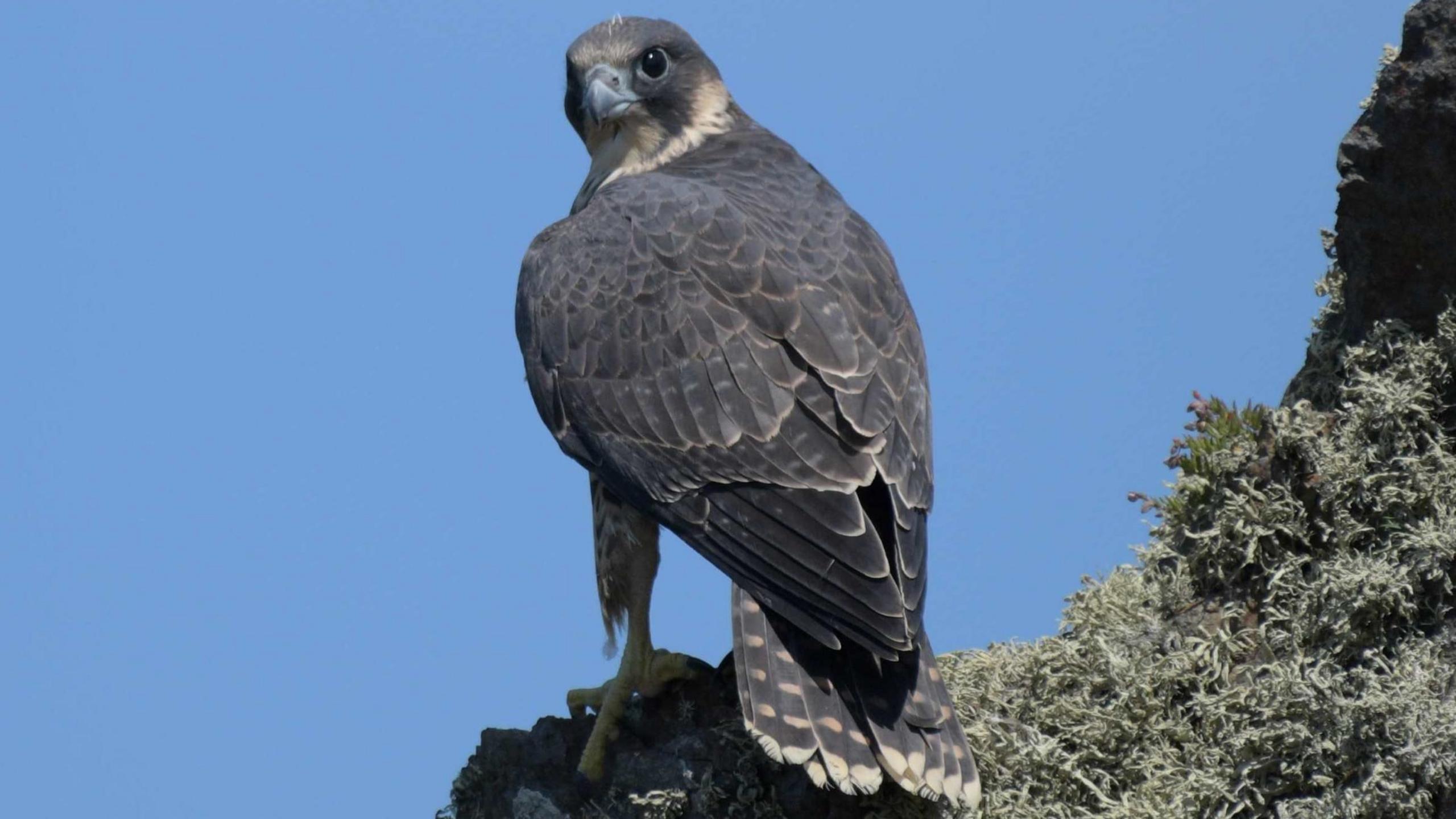Warning that Cairngorms' peregrine falcons in decline

Peregrine falcons are the world's fastest animals reaching speeds of more than 200mph
- Published
The Cairngorms National Park's peregrine falcon population may have halved over the last two decades, according to new research.
Scottish Raptor Monitoring Scheme carried out its first park-wide survey, external of the birds of prey last year.
It found the number of breeding pairs had declined by 56% since 2002 with the majority of them failing to successfully fledge chicks.
Researchers said contributing factors were likely to include decreased prey availability, upland land management practices, wildlife crime and avian flu.
Peregrines are the fastest animals on Earth and can reach speeds of more than 200mph when they dive on prey, such as pigeons.
Dr Sarah Henshall, head of conservation at the Cairngorms National Park Authority (CNPA), said the study painted a "bleak picture".
She said the authority would work closely with bird of prey study groups, estates and other experts on researching the falcons' behaviour.
GPS tagging birds could also be used to help tackle wildlife crime, she said.
Scottish Land and Estates said landowners and rural workers were committed to bird of prey conservation.
Ross Ewing, director of moorland and strategic projects, said avian flu and harsh weather posed threats to peregrines.
He said: "The reported decline in the peregrine population within the Cairngorms National Park is concerning and reflects a wider trend observed in the Scotland and UK-wide populations over the last three decades."